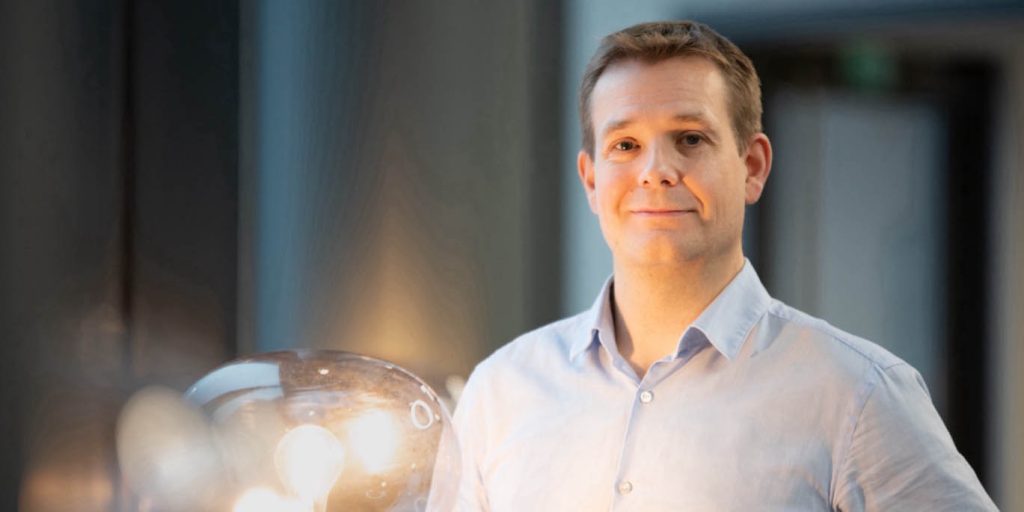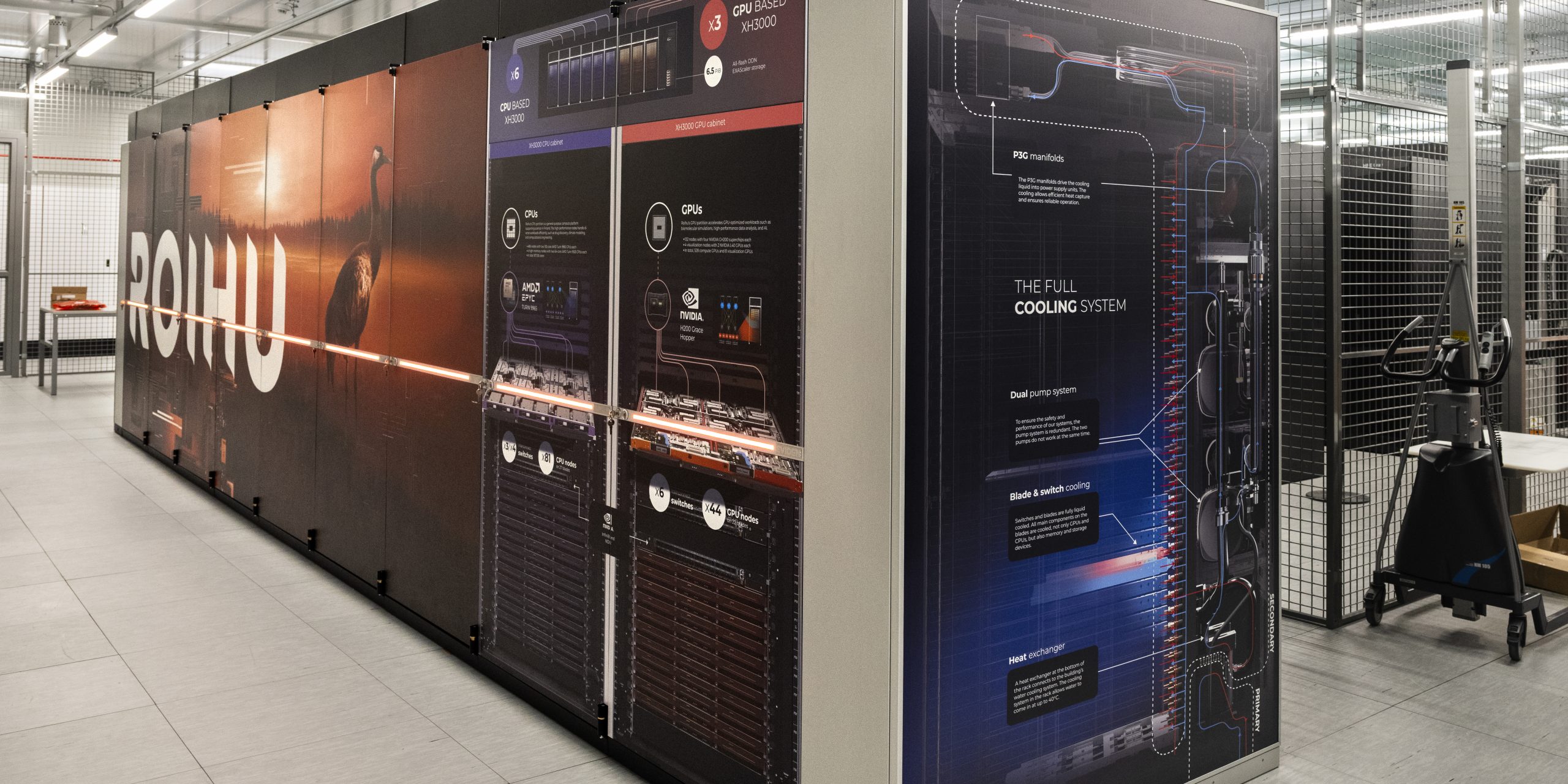QMill develops quantum algorithms for the near future on the LUMI supercomputer
QMill is a Finnish startup company that is developing quantum algorithms for industrial use on a quantum computer of the near future in 3-5 years. The company uses the LUMI supercomputer to simulate and compare algorithms.
QMill’s current focus is a few years away: The company is working to find completely new, viable algorithms for future quantum machines and thus reduce the time to beneficial use of quantum computing. With their algorithms, QMill is targeting industrial optimization customers from different industries, among others.
“Optimization is always about cost savings and efficiency, but also about environmental friendliness and energy cost savings. Quantum computers are energy efficient and consume less electricity than supercomputers,” says Ville Kotovirta, Chief Technology Officer at QMill.
Simultaneously, QMill is also contributing to the development of a competitive quantum computing ecosystem in Finland, says Kotovirta.
“The whole quantum industry will grow significantly in the future, and the strongest pioneering companies will gain a significant competitive advantage.”
In addition to Kotovirta, QMill’s founding members are CEO Hannu Kauppinen, Chief Scientist Mikko Möttönen and Chief Algorithm Engineer Toni Annala. The company, located in Espoo, Finland, employs 14 people.
High expectations for the quantum industry
Expectations for the quantum industry are high. Quantum computers are expected to solve highly complex problems that are too large for today’s supercomputers.
“With the help of near future algorithms, we aim to solve, for example, demanding optimization problems and deterministic computational problems in business and industry. These are likely to be better solved by quantum mechanics-based technology than by classical high-performance computing,” Kotovirta says.
Quantum computing tries to solve the problem using qubits. The strength of qubits is that, when they are in a superposition, they can go through all the answer options of the problem simultaneously. This is something supercomputers can’t do.
“However, the use of quantum computing in business requires that the problem is clearly best solved by quantum technology. Ultimately, the need and the customer will decide and choose the most appropriate computing method for each problem. It makes sense to develop different computing methods in parallel, and choose the best one according to the use case,” Kotovirta explains.

There are still few operational quantum machines globally, but the size of the quantum industry market is estimated to be approximately one billion euros.
In Finland, the quantum computers developed jointly by VTT Technical Research Centre of Finland and IQM – the five-qubit superconducting quantum computer Helmi and the 20-qubit machine – have been in operation for a few years. Helmi is also used to develop quantum computer software and algorithms for commercial projects. It operates via the EuroHPC LUMI supercomputer operated by CSC. The link between supercomputers and quantum technology is strong because supercomputers can simulate the performance of a real quantum machine.
Next in Finland, VTT and IQM are expected to complete a more efficient 50 qubit quantum machine.
Smooth simulation and benchmarking with LUMI supercomputer
“In the spring of 2024, we applied funding and support for QMill, and in the summer, the company was up and running. We also received funding from Business Finland, with a recommendation to apply for additional computing support, which we then used for LUMI computing capacity,” says Kotovirta.
“Business Finland’s computing support is aimed at supporting our product development funding. We want to use it to improve the international competitiveness of Finnish companies and accelerate the development of world-class products and services based on quantum computing and machine learning, for example. We see that product development in leading companies is gradually becoming more and more computational, and this also requires new skills from companies. We will add computing support to our product development funding for SMEs if they have problems to solve that would benefit from LUMI’s high computing power,” says Outi Keski-Äijö, Head of Quantum Computing Campaign at Business Finland.
QMill founders had previous experience with supercomputers and collaborating with CSC.
“We started to use LUMI in the autumn of 2024. We found CSC’s user documentation and manual helpful, and the discussions with the support team helped us significantly in getting the project smoothly off the ground,” Kotovirta says.
“With LUMI, we are testing whether our quantum circuits work correctly and efficiently, and how they scale as we increase the number of qubits. We also use LUMI to benchmark quantum algorithms, i.e. to see how well a problem is solved by classical algorithms on a supercomputer and compare the results with a quantum algorithm,” Kotovirta continues.
With LUMI, we are testing whether our quantum circuits work correctly and efficiently, and how they scale. We also use LUMI to benchmark quantum algorithms, i.e. to see how well a problem is solved by a supercomputer compared with a quantum algorithm.
Ville Kotovirta, QMill
QMill wants to continue using LUMI.
“We are constantly looking for algorithm ideas, verifying them mathematically and by simulation and then computing with real quantum computers. We also benchmark against classical computing all the time,” Kotovirta describes the development process.
“Our goal is to validate the first useful quantum algorithm in about three years. We will benchmark the algorithm against all the best high-performance computing algorithms and hope that it performs better than any of them. Time will tell if we have a working quantum machine three years from now to demonstrate our results,” Kotovirta says.
“It is important for CSC to understand the R&D needs of industrial quantum projects. In this respect, collaboration with QMill has given us valuable experience for the future,” says Dan Still, Partnership Manager at CSC.
Industrial companies in Finland still cautious
Describing the quantum computing market, Kotovirta estimates that the industry is in a training phase.
“Now, we are learning how to simulate, build, operate and program quantum computers. In Finland, industrial companies have perhaps been a little cautious. Around the world, big companies are busy practicing quantum computing,” he says.
“We have strong expertise in quantum computing in Finland thanks to VTT, IQM and CSC and their developer partners. Our aim in this field could be to collaborate even more with Finnish partners and to further develop this strong ecosystem, which would also attract international expertise and work force in Espoo, ‘Finland’s Quantum Silicon Valley’. When the computing tools are ready for use and the industry starts to see an influx of investment, we need to be ready,” says Kotovirta.
Read more
- LUMI’s business use: High-performance computing for companies

Dan Still
Dan Still works with building industrial partnerships and networks to boost industrial HPC use.





